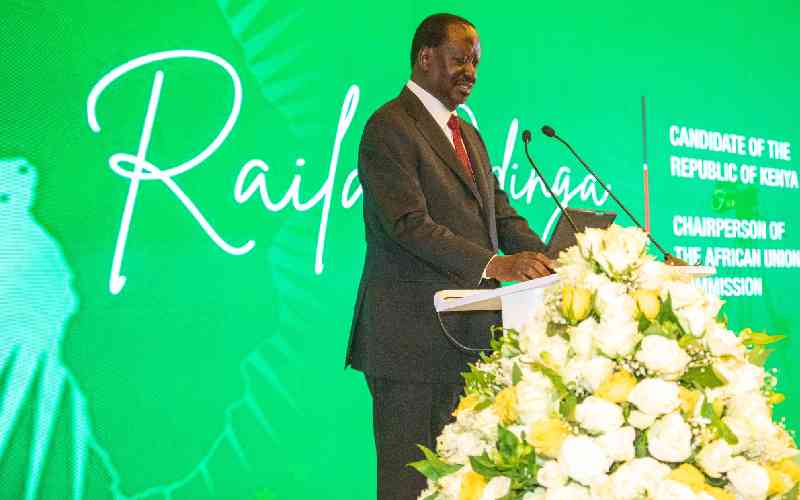×
The Standard e-Paper
Smart Minds Choose Us

Former Prime Minister Raila Odinga yesterday unveiled his vision and priorities for the African Union Commission (AUC) position, formally kicking off his journey to the February polls.
Raila, introduced on stage by Prime Cabinet Secretary Musalia Mudavadi at an event in Addis Ababa, Ethiopia, yesterday, now has less than three months to sway countries in his favour.